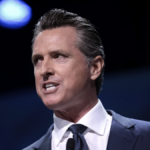
While California Burns, Gavin Newsom Begs Biden To Silence ‘Disinformation’
January 11, 2025
Explaining Trump Derangement Syndrome (TDS)
January 11, 2025What’s Next for Content Moderation After Meta Drops Fact-Checkers?
Meta’s recent announcement to end third-party fact-checking on its platforms has sparked widespread debate about the efficacy and necessity of content moderation. The company’s decision reveals a shift in strategy that may impact the landscape of information dissemination on social media. Many wonder if this change will spark a fresh wave of misinformation or lead to a more diverse exchange of ideas without perceived bias.
Meta’s Strategic Shift
Mark Zuckerberg, CEO of Meta, announced that the company will cease its collaboration with third-party fact-checking organizations on Facebook and Instagram. This decision is based on concerns about political bias and trust issues associated with these partnerships. By cutting these ties, Meta aims to address criticisms that the partnerships with fact-checkers were themselves politically tainted.
The decision has been welcomed by individuals who prefer minimal moderation of political speech on social media. They believe this move might enhance the free exchange of ideas on such platforms, free from the interference of perceived biased fact-checking.
Concerns from Fact-Checkers
Fact-checkers have expressed disappointment, highlighting that they lacked the ability to remove content—pointing out that responsibility lay with Meta itself. Lori Robertson commented, “We did not, and could not, remove content,” emphasizing their limited role in content moderation.
“Fact-checking isn’t going away, and many robust organizations existed before Meta’s program and will continue after it,” said Angie Holan, highlighting resilience in the fact-checking community despite Meta’s exit from these partnerships.
Impacts on Content and Platforms
Meta has been a significant revenue contributor for several fact-checking organizations, putting some initiatives at risk without this financial support. Additionally, critics of Meta’s past practices believe fact-checking has coincided with a stagnation of interesting political discourse on social platforms.
Current reports suggest that since the prominence of fact-checking, Facebook, in particular, has seen a rise in what some consider less meaningful content, potentially impacting the platform’s overall appeal and engagement metrics.
While the broader implications of this decision will unfold over time, it highlights the ongoing conversation about how major platforms balance the integrity of shared information with the preservation of free speech.
Sources:
Fact-checking organizations respond to Meta policy changes
The post What’s Next for Content Moderation After Meta Drops Fact-Checkers? appeared first on The Conservative Brief.




